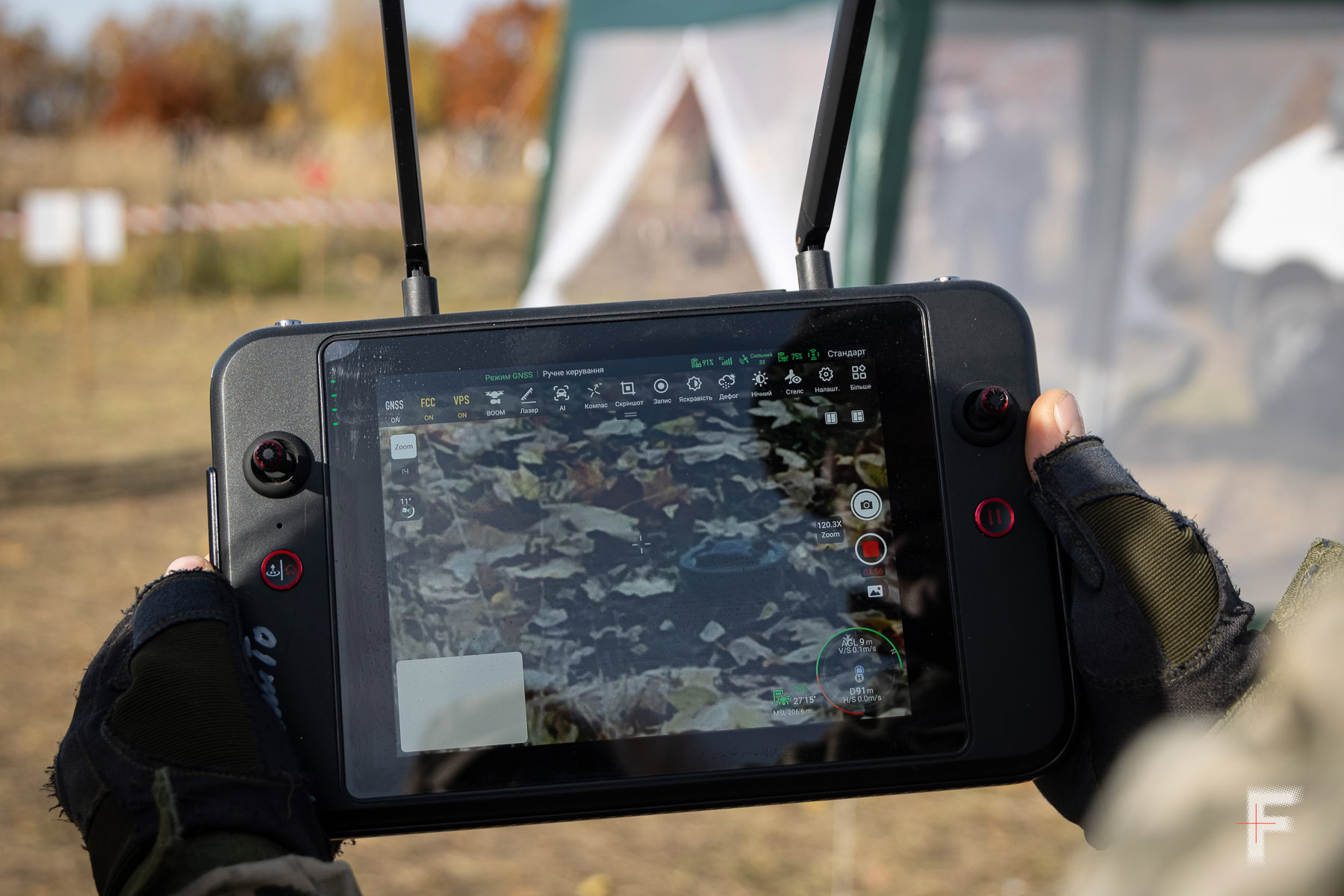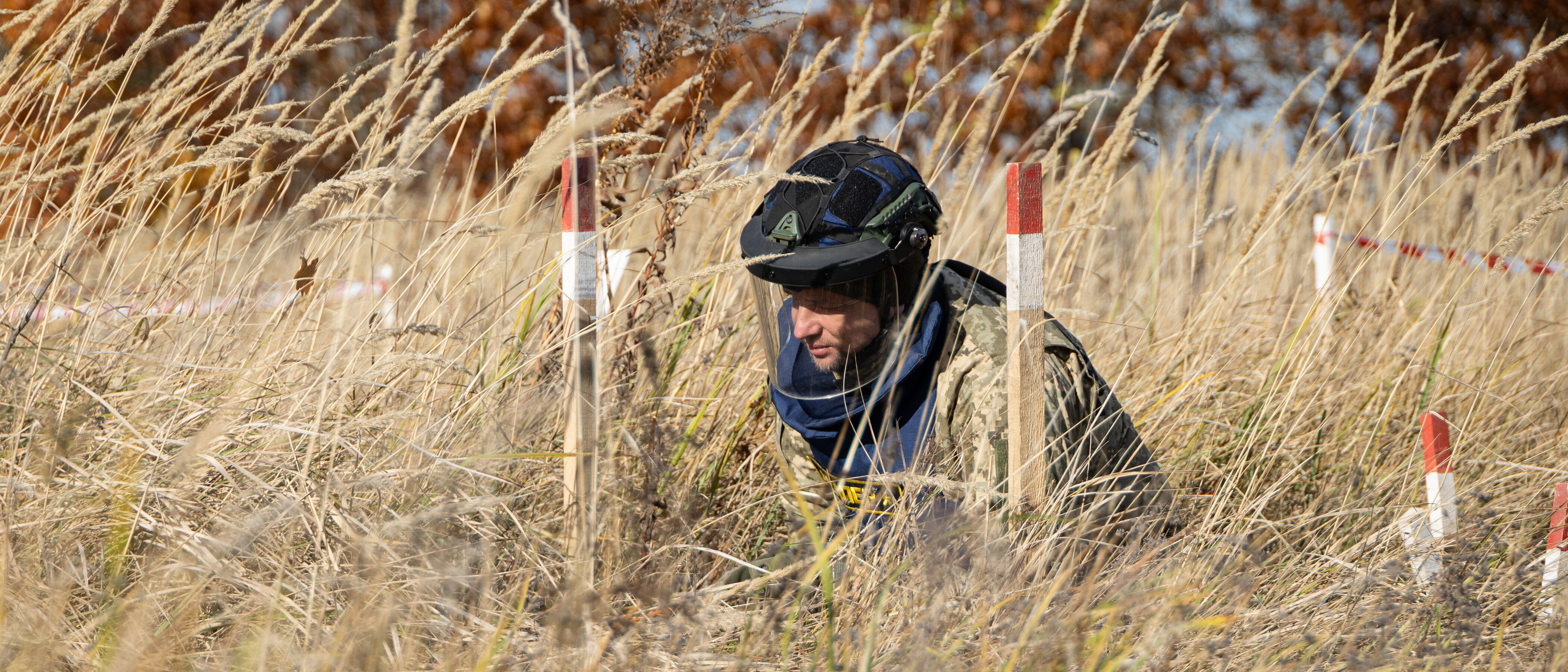

From discharge to demining: the veterans determined to return to the military service
In Kyiv, veterans are training in humanitarian demining to find their place in civilian life while applying their combat experience and skills. Learning to become a deminer after being wounded and leaving the Armed Forces allows them to continue serving in a new way – helping with Ukraine’s recovery. Yet the veterans Frontliner spoke with say they don’t plan to stop at mastering demining; many are determined to return to the front lines.
On a sunny Thursday morning in autumn, twenty veterans of various ages gathered at a training ground near Kyiv for the next stage of their demining preparation. The mood in the group is upbeat: they are about to enter a field where training explosives have been cleverly hidden.
Before they begin, the men gather around an improvised field kitchen for tea and pastries. Everyone is dressed in military uniform, yet the atmosphere on the field is relaxed. The group commander, chosen by the veterans themselves, gives instructions and encourages his comrades to maintain a friendly level of discipline, keeping a watchful, supportive eye. The men put on protective gear and check their metal detectors.
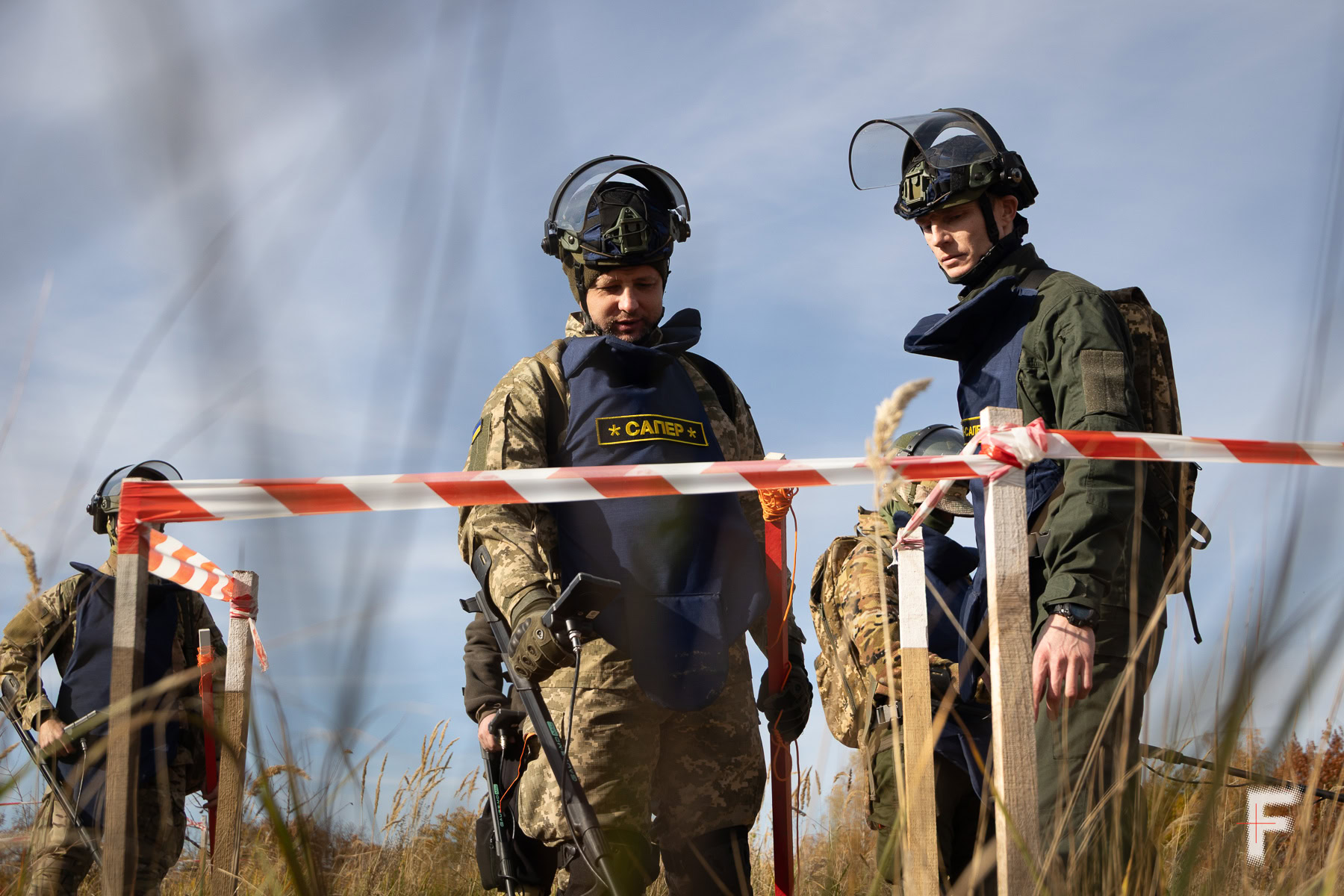

Why veterans want to return to service
Among them is 44-year-old Ruslan Samoilenko, callsign ‘Al Capone.’ He says he came to train in demining so he can return to active service and eventually become an explosive ordnance disposal (EOD) instructor.
“I don’t know if I’ll go into humanitarian demining. I’m more interested in explosives work. Maybe I’ll join a combat brigade somewhere, if they accept me. For me, the main thing is to get this certificate so I can prove I have a specialty, some combat experience, and the ability to train others,” he says.
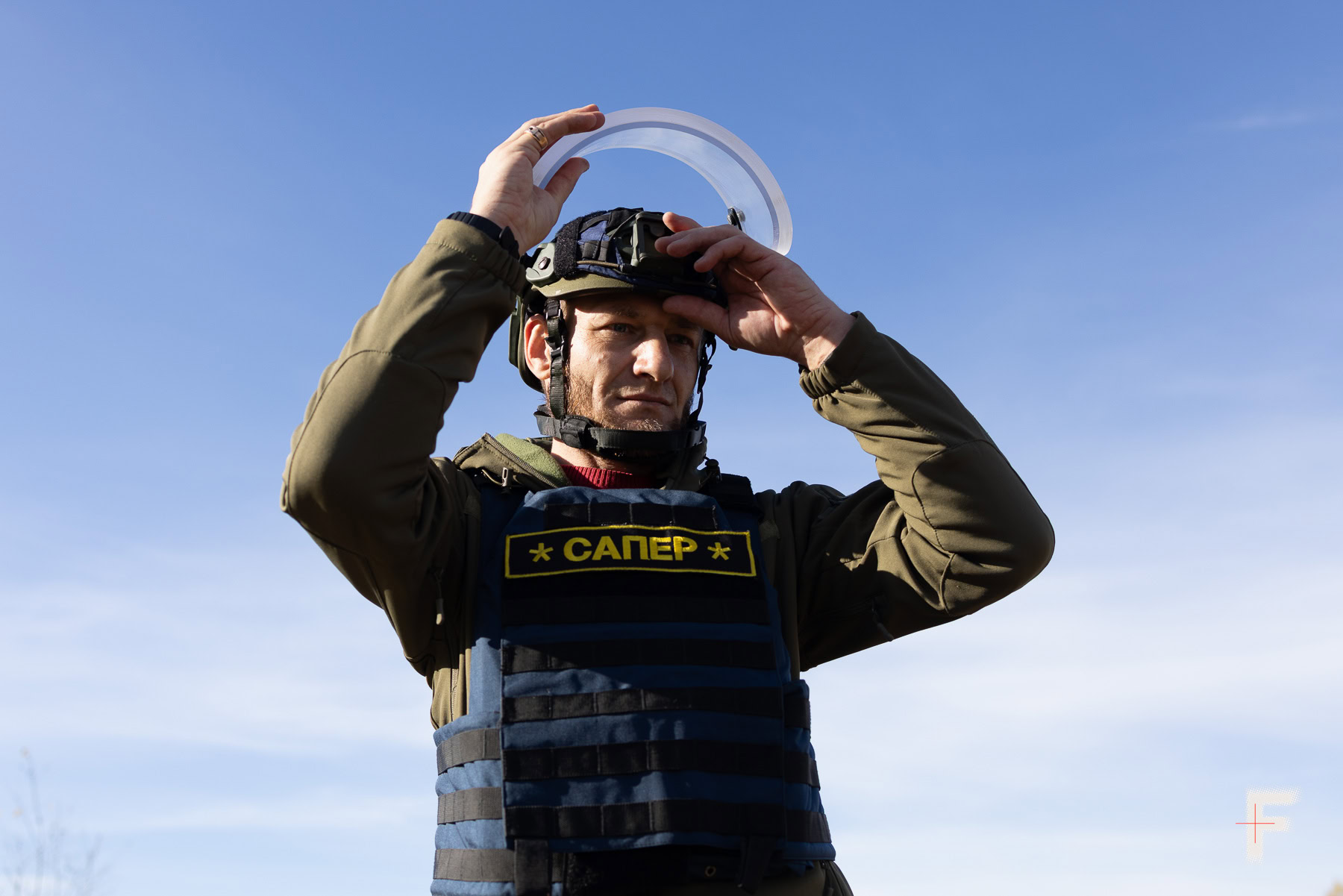

Ruslan is a military sapper originally from Myrhorod in the Poltava region. He served as the commander of an engineer-sapper unit in the 58th Brigade. Before being mobilized in June 2023, he worked at a window manufacturing plant.
Ruslan was wounded on March 28, 2024, on the Novodonetske front near the village of Kermenchyk. He lost toes on his right foot in an explosion while inspecting captured Russian tanks that had been booby-trapped. After about nine months of treatment and rehabilitation, he was classified with a second-category disability.
After returning to civilian life, Ruslan tried to find his place but ran into a challenge.
“At first, it was really hard for me to communicate with people, because here it’s civilian life, and over there we had combat. When I start a conversation with someone, we begin talking normally, but I end up talking about combat. Do you understand?” Ruslan explains.
I just don’t see myself in civilian life.
I’m used to that world,
After being discharged from the Armed Forces of Ukraine, the veteran took a job at a friend’s furniture factory, but the work didn’t fulfill him. Ruslan says his favorite work is handling explosives.
“I like doing demolition work. It’s the most interesting job in the world. I just don’t see myself in civilian life. I’m used to that world, and I feel pulled back there (ed.: back to the front), I’m not stopping with this training,” he says.
Ruslan isn’t the only one who, despite his health condition, wants to use the certification he’s earning to remain useful to the military.
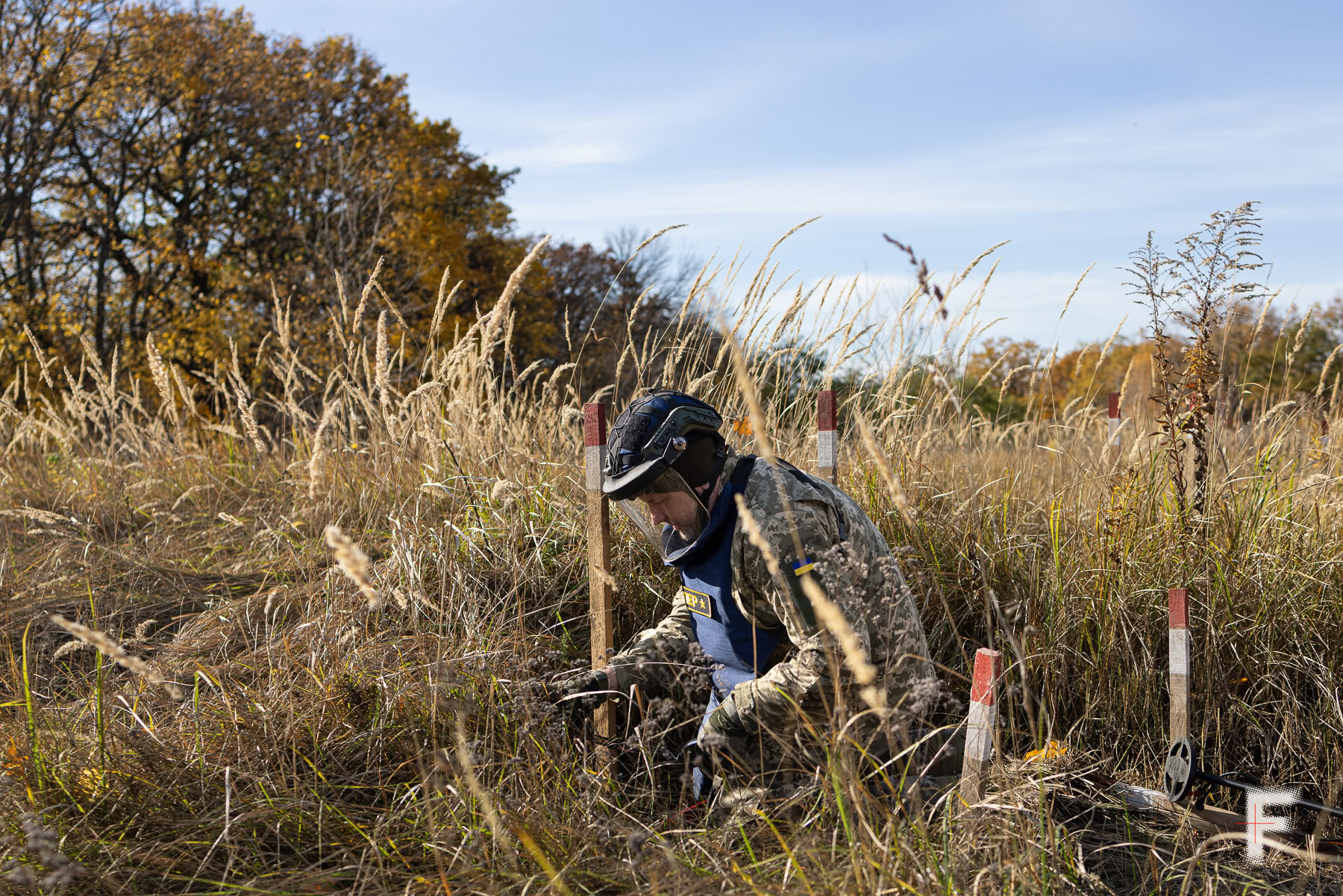

Serhii Novikov, 54, a former communications platoon commander of the 128th Assault Brigade, joined the course not to pursue a career in demining, but to acquire new skills. He hopes to return to his brigade equipped with these abilities, as he says there is a shortage of personnel at the front.
The guys, jokingly but sincerely, tell me, ‘You abandoned us.’
I need to return, because things are hard for them there,
During the training, he operates his drone to locate explosives from above. Within minutes of takeoff, he demonstrates the results, pointing out a newly discovered mine on his controller’s screen.
In the past, Novikov worked as the editor-in-chief of the Koruptsioner v Ukraini, a magazine focused on exposing corruption, while also volunteering and helping friends who were fighting in the ATO. After the full-scale war began in April 2022, he was mobilized in Kramatorsk during one of his volunteer aid trips.
[Translator’s note: ATO, or “Anti-Terrorist Operation,” was the official term from 2014 to 2018 for Ukrainian military operations in the Donbas region against Russian-backed forces. The term continued to be used colloquially even after 2018, until the full-scale invasion in 2022.]
Serhii fought for three years, taking part in battles in Siverodonetsk, Bilohorivka, where Russian forces advanced across the Siverskyi Donets River, Bakhmut, and Soledar, as well as serving on the Kherson and Zaporizhzhia fronts.
“I was discharged for health reasons,” Serhii explains. “I have diabetes and a third-category disability, but I have no combat injuries. They said limited-fitness soldiers can’t serve in an assault battalion, so I was sent to a medical board and given the option to continue serving or be discharged. I chose to leave and enrolled in this training.”
He has already qualified as an FPV pilot and took an FPV engineer course in the 3rd Assault Battalion.
“For veterans, professional identity is fundamental.”
The humanitarian demining course is a pilot project by the Unconquered Foundation, funded by the Republic of Slovenia through Slovenia Aid & Partnerships ITF. The program aims to help veterans reintegrate into civilian life while learning a profession that resonates with the spirit of military service.
We know that for a great many veterans, their professional identity is the very foundation on which their well-being rests,
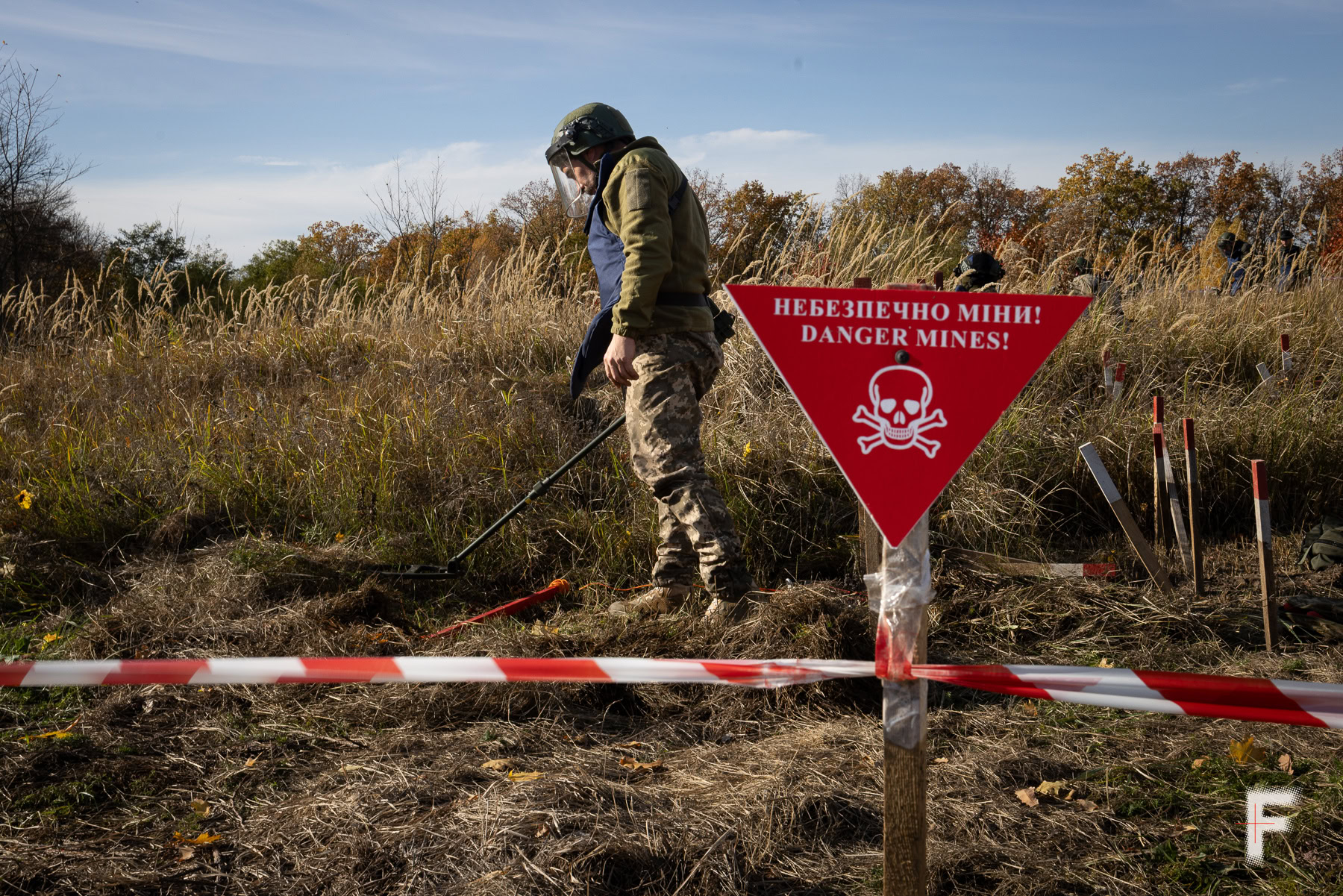

The 10-week course combines classroom and hands-on sapper training, first aid instruction, and career counseling to help participants transition to future employment.
On the training ground, veterans practice manual demining and operating a ground robotic complex (GRC). They also rehearse emergency response procedures for incidents involving explosives and enhance their skills in providing first aid.
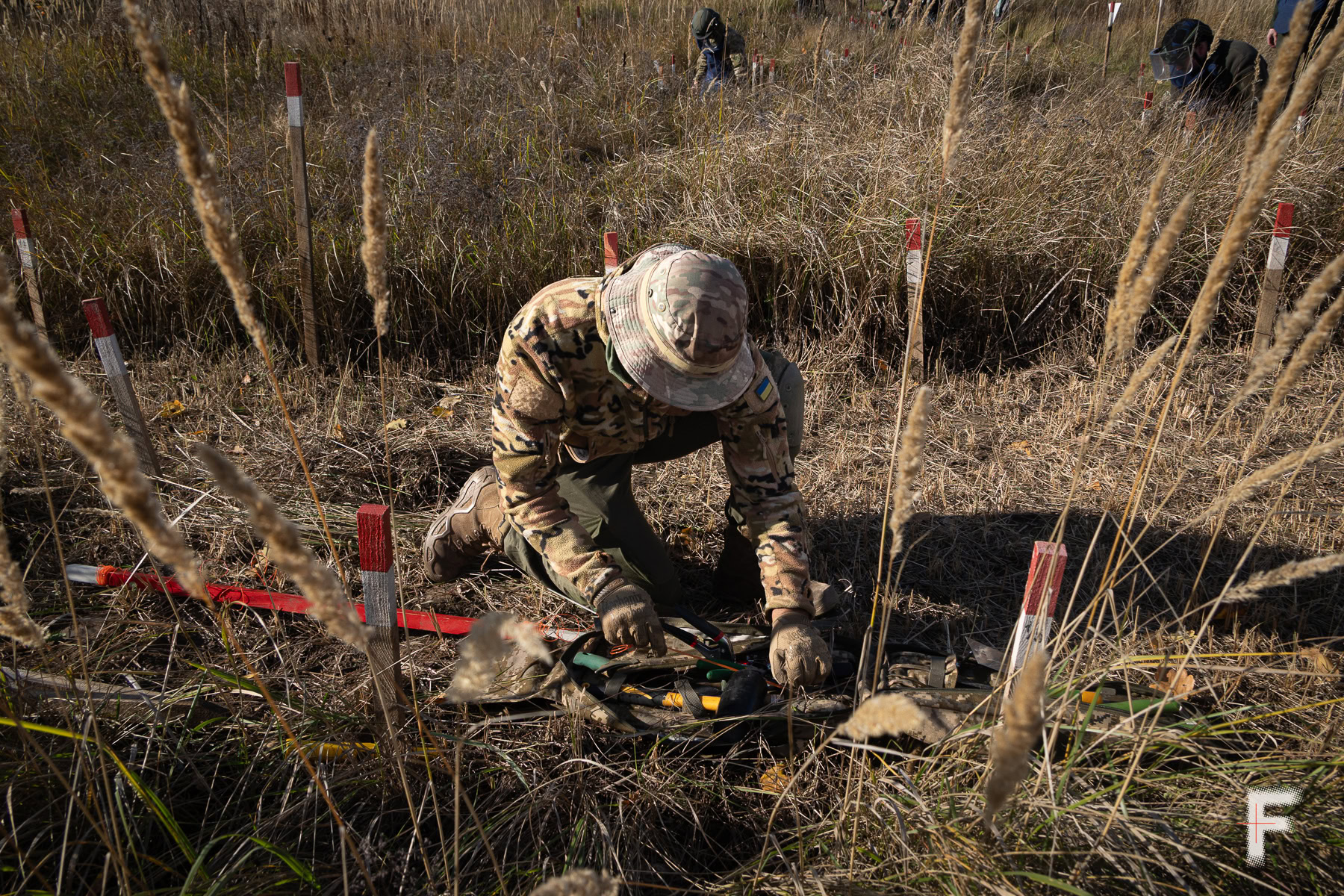

As each veteran works on their assigned section, trimming grass and moving painstakingly centimeter by centimeter on their knees, several training explosive devices are triggered.
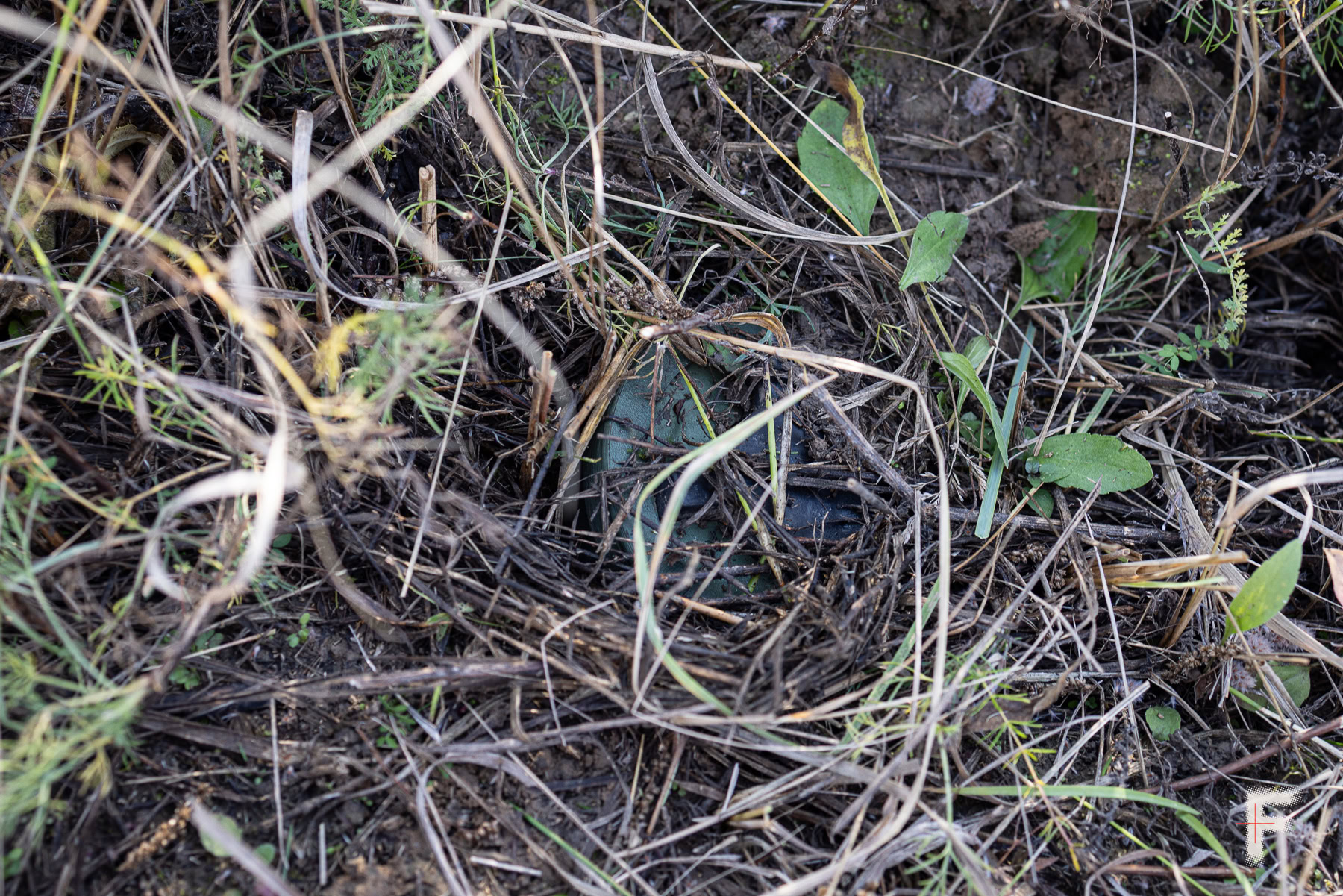

Denys Sheverun, callsign ‘Sheva,’ accidentally triggers a mock tripwire. A sudden loud pop, like a firecracker, is followed by smoke and a whistle. One of the veterans rushes over with a stretcher to Denys, who is theatrically acting as the casualty, while five more future sappers run to lift the stretcher and carry the ‘wounded’ to a vehicle for evacuation to a mock hospital. First aid in this simulated scenario is executed like clockwork.
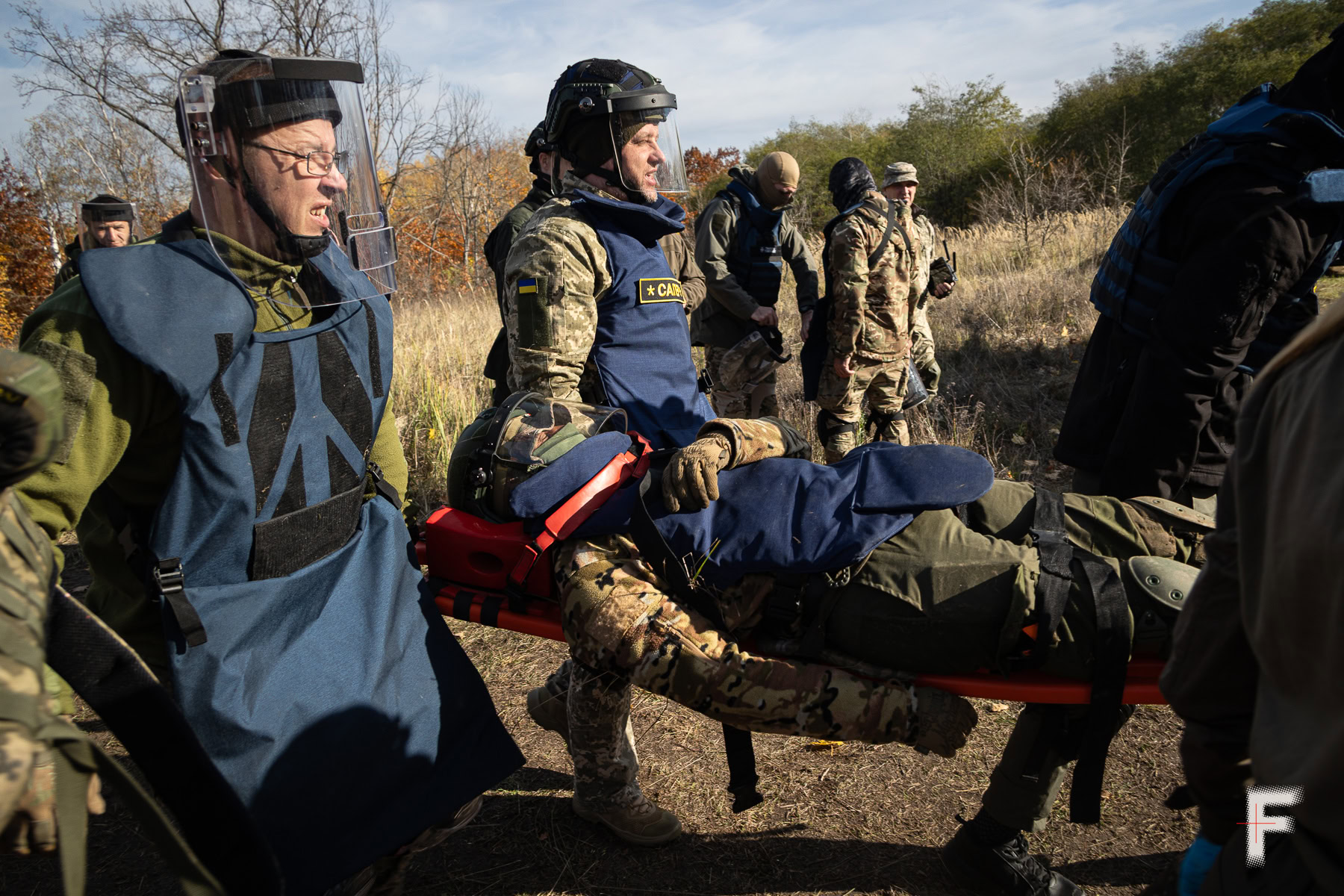

When asked if he feels fear working with explosives, Denys replies that he does not. On the contrary:
“With explosive devices, you’re not afraid. You know that if you handle them carefully and correctly, nothing will happen. A civilian, just hearing the word ‘mine,’ is already scared. But a soldier has faced it all,” he says.
Denys is 33 years old. He served as a rifleman in the 26th Rifle Battalion, which he joined as a volunteer in the early days of the full-scale war. He is from Kyiv, and before the invasion, he worked in cash-in-transit services. Denys is also an ATO veteran, having served for a year and a half in the 15th Regiment of the National Guard of Ukraine, taking part in battles in Sloviansk, Kramatorsk, and Bakhmut.
In October 2023, while in Avdiivka, Denys was seriously wounded by shrapnel that penetrated his head during a Russian artillery attack. The injury left the left side of his body paralyzed. Recovery was challenging – he underwent surgery to insert a titanium plate and spent a year in rehabilitation, which ultimately allowed him to walk again.
Denys says he would certainly like to return to service, but he knows his health prevents it. For him, training as a demining expert is a way to stay engaged and not feel like he’s sitting idle.
Денис каже, що безумовно хотів би повернутися на службу, але розуміє, ща станом здоров’я не може. Тому стати сапером – для нього це спосіб почуватися, наче не сидиш склавши руки.
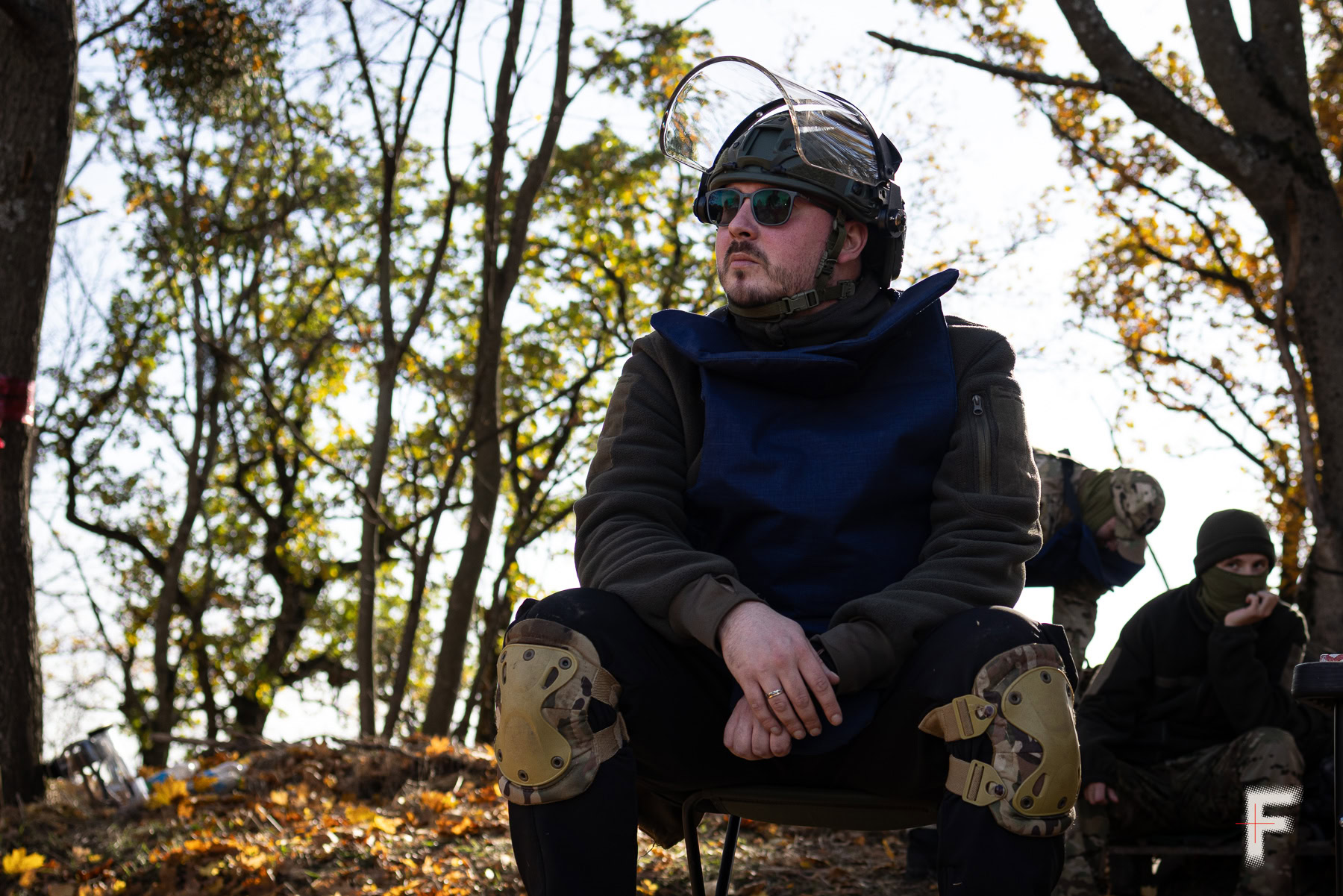

“We have to work for the good of the country,” the veteran says. “Times are tough, and there’s a lot of work to do in demining and in military service. I can’t serve in the Armed Forces because of my health; I’m not much use there. But in humanitarian demining? Why not? I can put my skills and experience to use.”
He plans to earn the certificate and later explore employment with humanitarian demining organizations or the State Emergency Service.
Future employment
Humanitarian demining is a profession closely aligned with military work, allowing veterans to continue serving Ukraine while feeling personally productive. Helping veterans find a professional fulfillment in civilian life is the central aim of the Unconquered Foundation project.
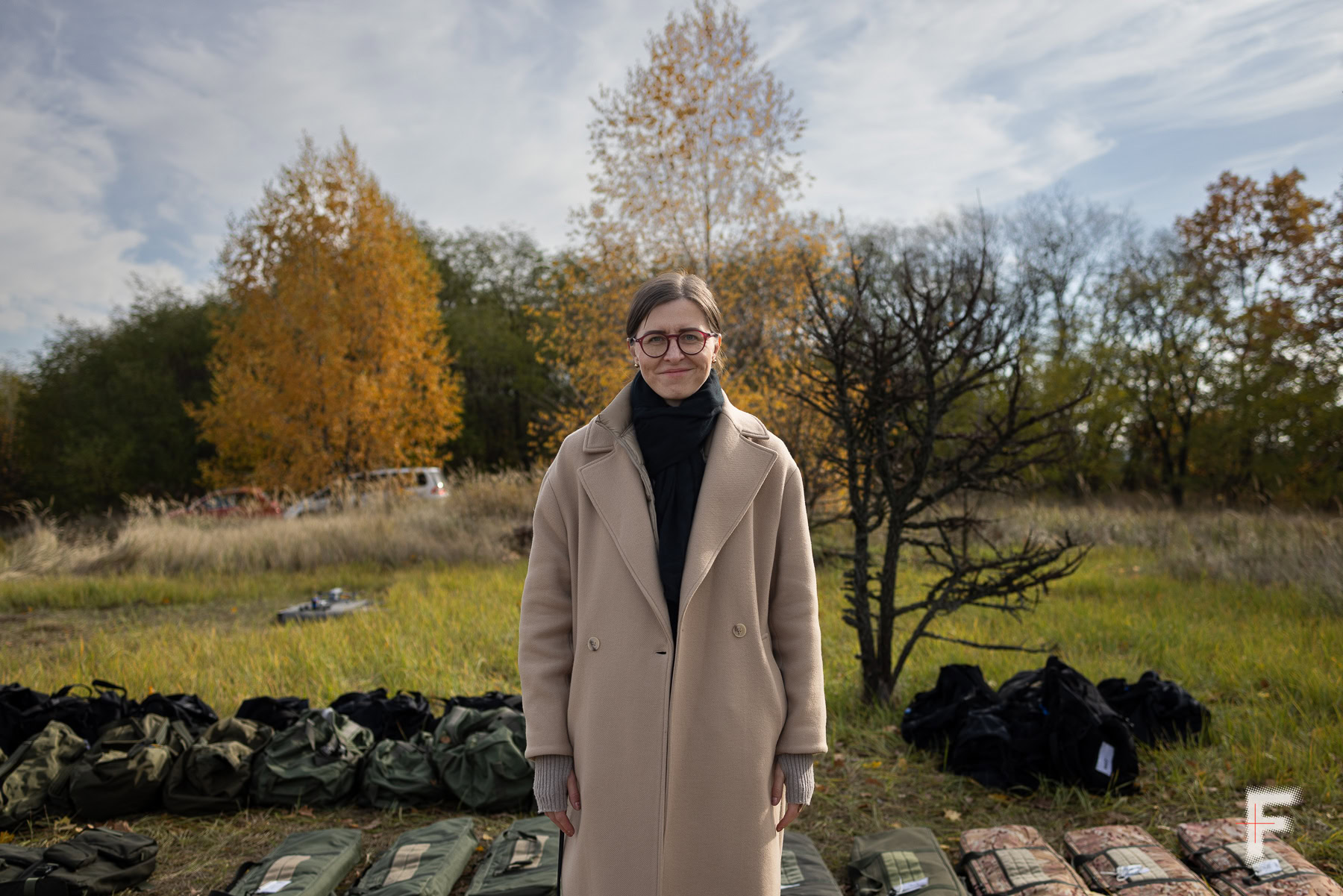

“For us, it’s crucial that participants are motivated not only to take the training but to pursue employment in this field,” Vyshnevetska states.
Acceptance into the training group was not guaranteed for all applicants. Veterans first filled out a questionnaire and then went through a series of assessments, including psychological tests to detect PTSD.
“It was important for us to make sure that a person first receives psychological support before moving on to employment. The sapper profession carries inherent risks, so it’s essential that they first adapt to civilian life.” Vyshnevetska explains.
She expresses regret that many veterans were unable to pass the health requirements. In the sapper profession, for instance, strong knees are essential, since the work often requires long hours kneeling while performing repetitive tasks.
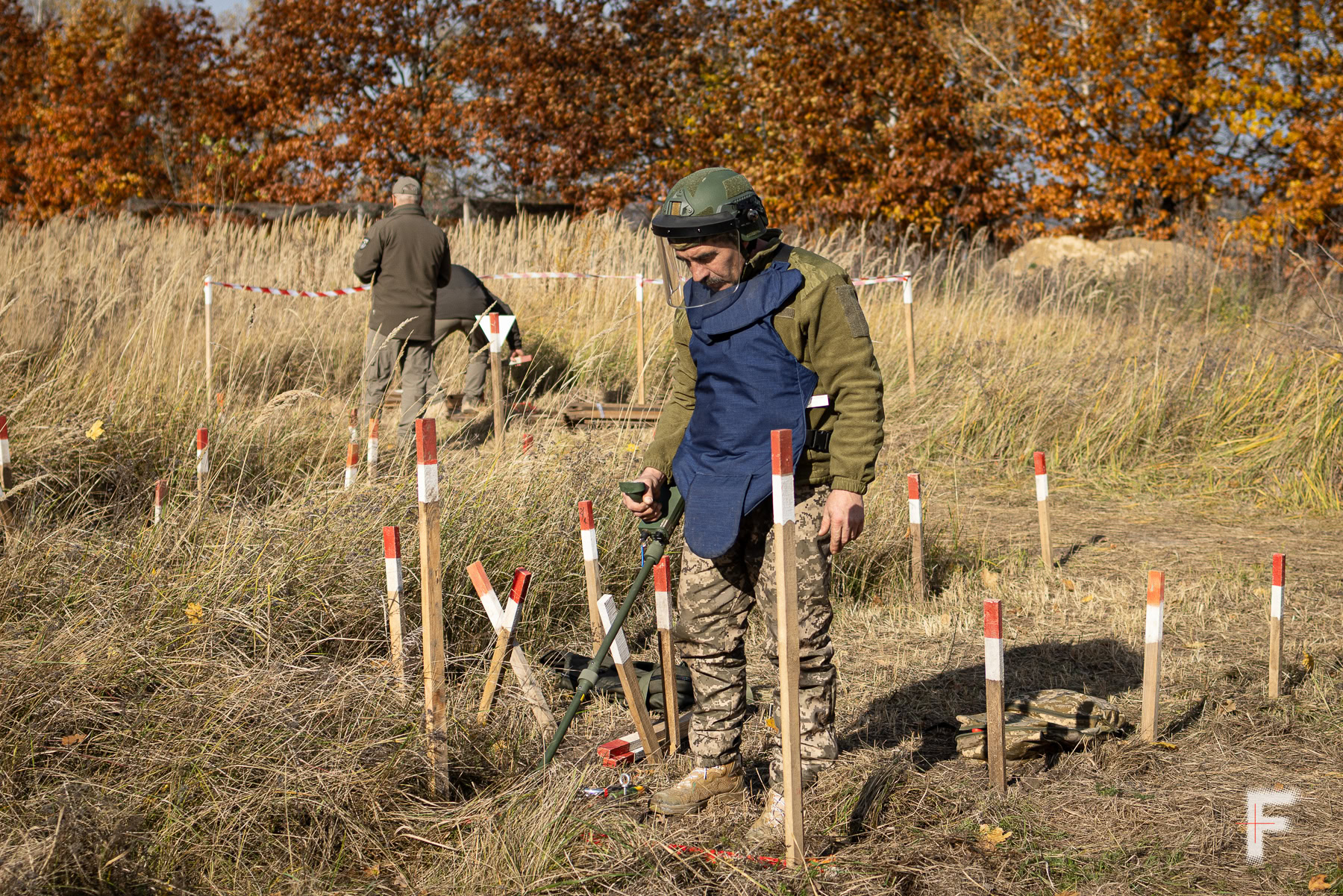

The program for veterans is offered at no cost. The organization intends to run a second training session early next year.
Text: Kateryna Farbar
Photos: Danylo Dubchak
Adapted: Irena Zaburanna
Read more — War has transformed the labor market: what jobs are now in demand

